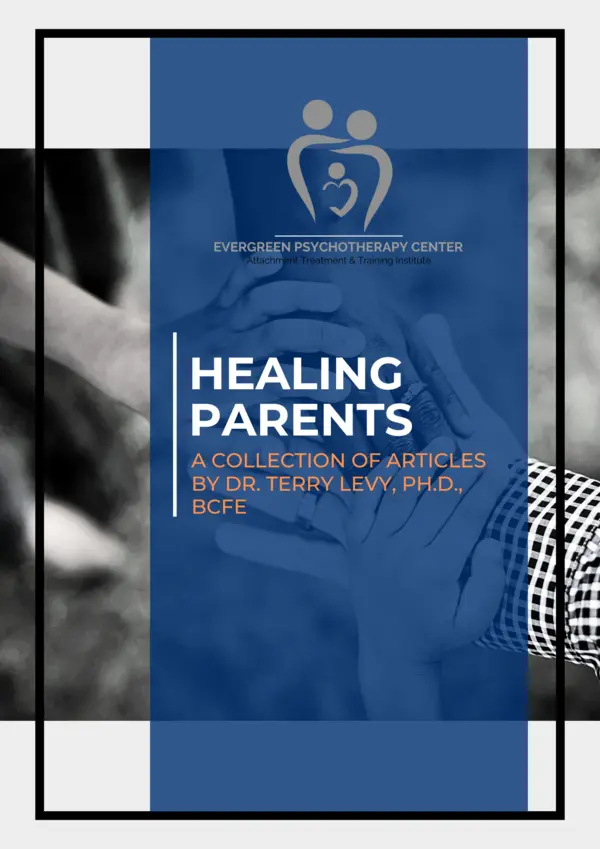Background reading
Terry Levy and Michael Orlans explain clinical research detailing the efficacy of Corrective Attachment Therapy.™
A retrospective, longitudinal research study conducted at the Evergreen Psychotherapy Center was designed to determine the effectiveness of Corrective Attachment Therapy, a combination of emotional, cognitive and family-systems therapy and parenting-skills training.
The study contained two parts. The first examined the demographic and clinical characteristics of 50 children and families who participated in the two-week Corrective Attachment Therapy treatment program.
The second part examined changes in the behavior and attitudes of children who completed therapy. Symptom reduction was determined by comparing scores on the 50-item parent reported Symptom Checklist pre- and post-therapy.
Here is a summary of some of the findings:
These children had severe psycho-social problems: 92% had a prior diagnosis of RAD, and 76% had multiple diagnoses (for example, Oppositional Defiant Disorder, ADHD, PTSD, Depression).
Parents reported more severe symptoms in their children prior to treatment due to:
Descriptive Analysis
Adoption Background Percent of Studied Group
- Adopted:: 84%
- Different race/ethnicity than adoptive parents:: 46%
- Adopted as part of sibling unit:: 45%
Placement History Percent of Studied Group
- One or more foster care placements prior to adoption (average of three placements): 72%
- Experienced severe and chronic physical, sexual and/or emotional abuse prior to adoption, with a mean of 48 months: 90%
- Were forcefully removed against biological parents’ wishes: 56%
- Spent considerable time in foreign orphanages: 34%
- parents and child of a different citizenship (cultural and ethnic differences)
- length of time abuse and neglect occurred before adoption
- number of years child spent with biological parents
- prior diagnosis of PTSD and/or several diagnoses in addition to RAD.
- Parents with secure attachment histories reported lowest symptom severity (34% of mothers and 38% of fathers).
- fewer moves in the foster care systems
- fewer pre-therapy diagnoses
- were not adopted as a sibling unit
- were not taking psychotropic medications during therapy
- had an adoptive mother with a secure attachment history

